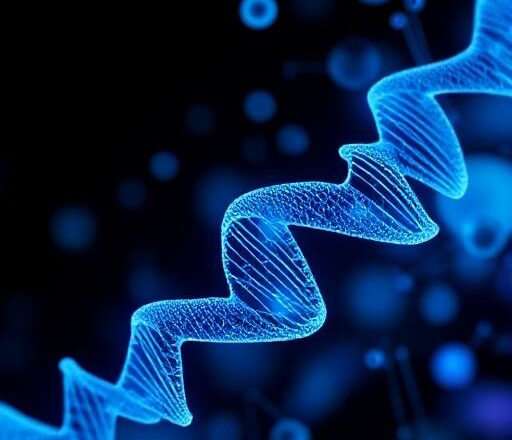Introduction
In 2025, biotechnology and digital health are converging at a pace that is redefining how we think about medicine, aging, and the human body. Once futuristic concepts like gene editing, lab-grown organs, and AI-driven drug discovery are now leaving the lab and entering clinics, hospitals, and even homes.
The biotech revolution is not just about treating illness—it’s about preventing disease, extending healthy lifespans, and tailoring medicine to each individual.
1. CRISPR Moves From Lab to Clinic
When CRISPR-Cas9 gene editing burst onto the scene a decade ago, it promised to rewrite DNA with surgical precision. In 2025, that promise is becoming reality.
-
FDA-approved CRISPR therapies for sickle cell disease and certain cancers are already saving lives.
-
Next-gen CRISPR tools (like base editing and prime editing) allow scientists to make even more accurate DNA changes, reducing off-target risks.
-
Researchers are exploring treatments for genetic blindness, cystic fibrosis, and even HIV.
CRISPR is moving medicine from treating symptoms to curing diseases at the root.
2. AI-Powered Drug Discovery
Developing a new drug used to take 10+ years and billions of dollars. In 2025, AI is rewriting that playbook.
-
DeepMind’s AlphaFold mapped nearly every known protein structure, giving scientists a blueprint for drug design.
-
AI-driven platforms can now predict how compounds interact with human biology, cutting discovery times to months instead of years.
-
Startups are partnering with big pharma to bring AI-discovered drugs to market faster than ever.
This means cures for rare diseases and faster responses to new pandemics.
3. The Rise of Personalized Medicine
One-size-fits-all medicine is dying. Instead, genomics and wearable data are ushering in personalized treatments.
-
DNA sequencing is now affordable for under $100, allowing doctors to tailor treatments based on genetic risk.
-
Digital twins—AI models of individual patients—are being used to simulate how a person will respond to drugs before they’re prescribed.
-
Wearables and smart implants track glucose, heart rate, sleep, and more, feeding real-time data into health dashboards.
Medicine is no longer reactive—it’s predictive and personalized.
4. Anti-Aging and Longevity Research
Biotech is not just fighting disease—it’s extending human healthspan.
-
Senolytic therapies that clear “zombie cells” are showing promise in slowing aging.
-
NAD+ boosters and mitochondrial therapies aim to rejuvenate energy production in cells.
-
Tech billionaires and biotech startups alike are pouring billions into longevity research, making aging itself a treatable condition.
While immortality is still science fiction, adding 10–20 healthy years of life is becoming increasingly plausible.
5. Lab-Grown Organs and Bioprinting
The organ transplant shortage may soon be a thing of the past.
-
Bioprinting companies are developing 3D-printed tissues and mini-organs for testing drugs and future transplants.
-
Stem-cell breakthroughs allow scientists to grow patient-specific organs, reducing the risk of rejection.
-
Clinical trials for lab-grown skin, corneas, and cartilage are already underway.
The ultimate goal? “Spare parts” for the human body on demand.
6. mRNA Beyond Vaccines
The COVID-19 pandemic proved mRNA technology could save millions of lives. In 2025, its use is expanding:
-
Cancer vaccines are in late-stage trials, training the immune system to recognize and attack tumors.
-
mRNA-based therapies are targeting autoimmune diseases, allergies, and rare genetic disorders.
-
The flexibility of mRNA means new treatments can be developed in weeks, not years.
mRNA has transformed from an emergency pandemic tool to a new foundation of medicine.
7. Global Health Equity and Challenges
Despite the progress, challenges remain:
-
High costs of gene therapies and personalized medicine raise questions about access.
-
Ethical debates around gene editing—especially for embryos—continue to divide public opinion.
-
Biotech inequality risks creating a world where only the wealthy benefit from longevity and advanced treatments.
Ensuring that biotech benefits everyone will be one of the defining struggles of this century.
Conclusion
Biotech in 2025 is at the intersection of biology and technology. CRISPR is curing genetic diseases, AI is accelerating drug discovery, mRNA is becoming a universal therapy platform, and personalized medicine is putting the patient—not the disease—at the center of healthcare.
The big question now is not “Can we do this?” but “Should we—and how do we ensure fairness and safety?”
What’s certain: The next decade of biotech will transform human health more profoundly than any medical revolution in history.
